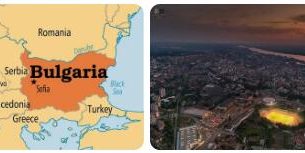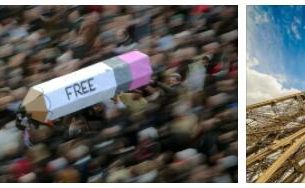Shopping
Overview
Shopping in Belgium is a real pleasure: the best souvenirs are the famous Belgian pralines, chocolate and waffles; Chocolate fans will find a large selection of confectionaries in Bruges and Brussels. Lace from Bruges, Brussels and Mechelen (Malines) is also popular; diamonds and jewelery from Antwerp; Ceramics and handcrafted copper items from Dinat; Crystal from Val Saint Lambert and wood carvings from Spa. Beer should not be bought in the tourist shops, but rather bought directly from one of the regional breweries, such as the Cantillon brewery in Brussels. The best shopping opportunities are in Brussels, Antwerp, Bruges, Ostend, Namur, Mons, Liège (Luik/Liège), Ghent and Mechelen. If you’re looking for something more unusual, buy a bottle of Jenever (spirit with a minimum of 35% ABV) from Hasselt, handmade halve maantje (moon-shaped biscuits dipped in chocolate) from Diest, or a comic book (bandes dessinée) from one of Brussels’ local cartoon artists. Fashion lovers will find what they are looking for in Brussels and Antwerp. Among the most elegant shopping arcades in Brussels are the glass-domed Galeries Royales St-Hubert, the Galerie Bortier and the Passage du Nord, while the Rue Neuve is lined with the usual fashion shops. Designer pieces can be found on Avenue Louise. High-quality antiques can be found in the Quartier des Sablon, while cheaper pieces can be found in the Quartier des Marolles. Antwerp’s haute couture boutiques are concentrated along the Nationaalstraat and Lombardenvest. The usual fashion shops are located on the boulevard Meir, which connects the train station with the old town. If you are looking for diamonds, you will find them in the Jewish quarter in the area around the main train station. There are a number of markets in Belgium, most of which take place in central squares on the weekends from 7am to 1pm. Arguably the best known is the Marché aux Puces flea market (website: www.marcheauxpuces.be) in Brussels, which takes place on the Place du Jeu de Balle, and the Marché du Midi food market, which is open on Sundays from 5am to 1pm takes place on the Boulevard de l’Europe.
- Topmbadirectory: Offers information about politics, geography, and known people in Belgium.
Opening hours
Shop opening times: Department stores: Mon-Sat 9am-6pm/7pm, Fri 9am-9pm. Supermarkets: Mon-Sat 09:00 – 18:00, Fri 09:00 – 21:00. Outside of the tourist areas, shops are often closed for lunch.
Nightlife
Introduction
The big cities of Belgium – Brussels, Bruges, Ghent, Antwerp and Liège – offer a variety of entertainment options, from international and domestic theaters or famous operas to cozy cafes, elegant cocktail bars and trendy nightclubs. Brussels in particular has a lively nightlife, with numerous restaurants. The city’s ten theaters perform plays in Dutch and French. The Théâtre National and the Théâtre Royal des Galeries are the city’s major stages. The Théâtre Cinq-Quarante and the Théâtre de Poche are known for experimental theatre. The numerous Brussels cinemas, countless discotheques and night cafés are concentrated in two districts: Port Louise to the north and the streets between Place Roger and Place de la Bourse. Among the night and jazz clubs, the most famous are Le Crazy, Chez Paul, Maxim and Le Grand Escalier. The jazz club and the Bloomdido Jazz Café are also popular. Ghent and Bruges are better known for their historical pubs, but there are also a few nightclubs. Antwerp has a lively club scene and is also home to Belgium’s biggest club, Noxx (website: www.noxxantwerp.com). There are also numerous cocktail bars and some jazz bars. In Liège (Luik/Lüttich), the nightlife takes place above all in Le Carré, which is closed to cars and where there are a number of bars in addition to the fashion shops. The Walloon Opera in Liège has a good reputation, as do the city’s theater companies. Leuven, Mons, Kortrijk and Namur offer similar evening entertainment. Things are a little quieter outside of the big cities, but you can always find a cozy place for a good beer. The most famous festival is the Flanders Festival (classical music concerts). The programs of the individual venues as well as information about the numerous other festivals can be found in the weekly event calendar BBB Agenda, which is available in the tourist information. Information on festivals outside the capital can be obtained from the Belgian Tourist Office.
events
National events
Culinary
Overview
In Belgian cuisine, which has a lot in common with the French, game and seafood are particularly popular. Plenty of butter, cream, wine and beer are used. Belgian chocolate, buttered waffles and french fries, preferably served with mayonnaise, are famous. Hearty hams and sausages come from the Ardennes. Most restaurants have waiter service, but self-service cafes are becoming more common.
Regional specialities
Moules-frites (mussels with french fries)
Useful information
Brewery visits: Belgium is known for its variety of beers. The various types of beer differ in color, brewing method and additives such as wheat or fruit. There is a special glass and label for each beer. Six different types of Trappist beer are still brewed by the monks according to ancient recipes. The following Trappist breweries can be visited: Bières de Chimayin Bailleux (tel: (060) 21 03 11) and Rochefortoise in Eprave (tel: (084) 37 80 84. Fax: (084) 37 84 45). Other breweries are also open to visitors for tours and beer tasting. Chocolate: Belgian chocolate and pralines are world famous. Some chocolate factories can be visited, however, advance telephone reservations are advisable. The Chocolate and Cocoa Museum on the Grand’ Place in Brussels is open every day except Mondays. The Chocolaterie Jacques in Eupen near Liège (tel: (087) 592 967. Fax: (087) 592 929) can also be visited. Advance booking for groups over 20 people. Gastronomy: Gourmets get their money’s worth in Belgium. The country has the highest number of Michelin stars per capita per population. A large selection of excellent restaurants, elegant cafes and cozy pubs awaits visitors. In Brussels and Antwerp in particular, there are numerous first-class gourmet restaurants. Some specialist tour operators offer culinary trips and holiday cooking courses in Belgium.
Tip
A 16% tip is usually already included in all hotel and restaurant bills. Hairdressers expect 20% of the bill (if the service is not included). The tip is included in the taxi fare.
Regional drinks
Belgian beer is excellent. There are over 400 types of beer, the most popular being Lambic (made from wheat and barley) and Trappist beer (the beer must have been brewed in a Trappist monastery or in its immediate vicinity). Beers with added fruit extracts, such as Kriek (with cherries), are also popular. The high-percentage Duvel should also be tried.
Minimum age for consumption of alcoholic beverages
In Belgium you can drink beer and wine from the age of 16 and spirits from the age of 18.>
Accommodation
Hotels
There is a large selection of hotels, guesthouses and inns in all price ranges. Hotel Classification: Hotels are classified into the Hotelstars Union star categories from one to five stars.
Camping
Most of the 500 campsites are on the coast or in the Ardennes. Addresses, prices and information are available from the Belgian Tourist Board (see addresses). The local “accommodation tax” (Verblijftaks/Taxe de Sejour) is usually included in the pitch price. In the summer season there is a 25% surcharge on the coast. With the permission of the property owner or lessee, you can also camp outside of the designated campsites.
Other accommodation options
There are two youth hostel associations: The Vlaamse Jeugdherbergcentrale (VJHC) (website: www.vjh.be) in Flanders and the Centrale Wallonne (CWAJ) (website: www.laj.be) in the French-speaking part of Belgium. The Flemish youth hostels are spacious and are often visited by school classes and youth groups. Walloon youth hostels are smaller and similar to French ones. A list of youth hostels and other low-cost accommodation options is available on request from the Belgian Tourist Office (see addresses) or from the Fédération Infor-Jeunes Wallonie-Bruxelles, Rue Henri Lemaître 25, B-5000 Namur. (Tel: (081) 71 15 90. Internet: www.inforjeunes.be)On sale in some areas. On the coast and in the Ardennes, you can also get help with work for a fee. Information and a directory of addresses are available from the Belgian Tourist Office (see addresses). Further information also from: Vlaamse Federatie voor Hoeve- en Plattelandstoerisme, Diestsevest 40, B-3000 Leuven. (Tel: (016) 28 60 35. Internet: www.hoevetoerisme.be) or Office de Promotion du Tourisme Wallonie, 30 Rue Saint-Bernard, B-1060 Brussels. (Tel: (02) 504 03 90. Internet: http://www.belgium-tourism.net))
Culture
Religion
Mainly Roman Catholic (75%); Islamic, Jewish and Protestant minorities. About 16% of Belgians do not belong to any religious community.
Social Rules of Conduct
Communication: You should know which language you speak in which part of the country. Many Flemings prefer to speak English to visitors, even if they have a good knowledge of French. In Wallonia, on the other hand, you should avoid speaking Dutch. Most locals are relaxed about this, but in some circles speaking the wrong language could be taken as an insult. When in doubt, English is a good choice. Overall, Belgians are seen as reserved and friendly, allusions to the confusion of languages or historical roles of the Belgian areas should be avoided. Manners: The usual forms of politeness should be observed. They shake hands to greet each other, but a kiss on both cheeks is more personal. If you are invited to dinner, the hosts will be happy to receive a bouquet of flowers or a small gift. At the beginning of the meal one wishes bon appetit/eet smakelijk. People should be asked before being photographed. Attire: Casual attire is appropriate almost everywhere, jeans and a smart top are appropriate for most occasions. More elegant attire is only expected at official events and in exclusive restaurants. Smoking: Smoking is prohibited in public buildings, restaurants, airports, train stations and on trains. Motorists should note that smoking behind the wheel is prohibited. Most hotels are non-smoking hotels, some hotels have extra smoking rooms. Tip: In restaurants and hotels, the tip is usually included in the price, but depending on the satisfaction, an additional tip is appreciated. Ushers, porters, porters and cloakroom attendants also expect a small tip.
Climate
Best travel time
temperate climate. Warm weather from May to September. Despite snowfall, winters are not very cold, except in the Ardennes.
Country data
Phone prefix
+32
Area (sq km)
30528
Population
11,569,623 (Source: homosociety)
Population density (per square km)
363
Population statistics year
2020
Member of the EU
yes
Main emergency number
112



